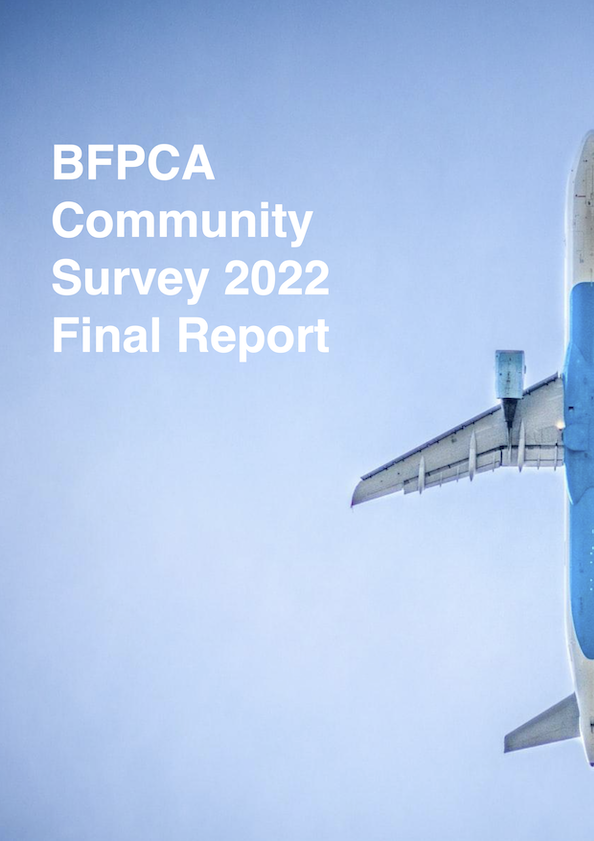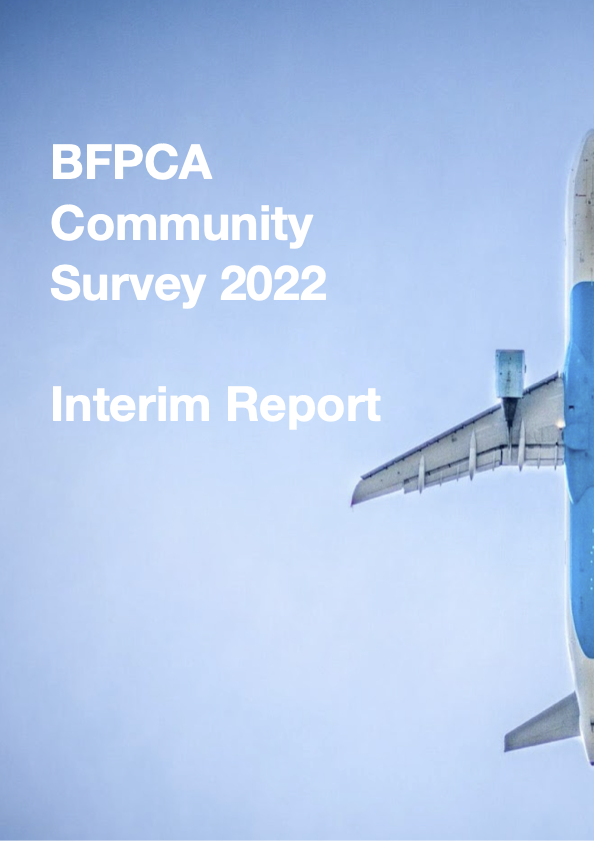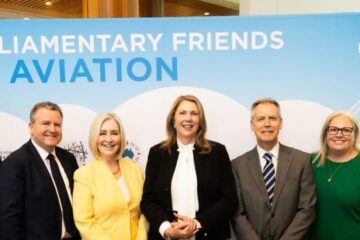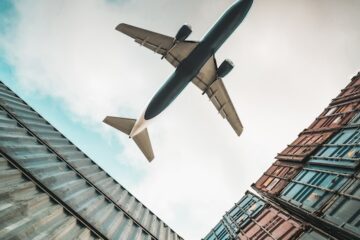Final Report (20 August 2022)

The final report of the Brisbane Flight Path Community Alliance (BFPCA) Community Survey for the first half of 2022 of Brisbane households affected by aircraft noise highlights the shocking extent of the mental health impact on the community as a result of the ongoing operation of the current Brisbane Airport flight paths. Moreover, the data confirms Noise Improvement Trials being run by Airservices since February 2022 provide no significant respite. Given the extent of the mental health impact (i.e., 98% of at least 2000 Brisbane residents reporting distress) Politicians at both State and Federal levels of government need to urgently identify measures to immediately reduce the ongoing impact to the Brisbane community.
Key Findings:
- 98% of approximately 2000 respondents across 81 Brisbane city postcodes say they are impacted by flight path noise in their living and sleeping quarters in their homes.
- 74% of respondents agreed or strongly agreed that they experienced mental distress related to aircraft noise.
- 87% of respondents agreed or strongly agreed that their sleep was disrupted by aircraft noise.
- 52% of respondents agreed or strongly agreed that they had physical symptoms of stress associated with aircraft noise.
- 86% of respondents agreed or strongly agreed that they feel unable to the escape the aircraft noise.
- 90% of the respondents said that aircraft noise interfered with daily indoor activities like using the phone or watching TV.
- 91% of the respondents said that aircraft noise levels were the same or worse during the period of the current Airservices PIR Noise Improvement Trials compared with levels experienced prior to the trial.
- 85% of the respondents said that the number of flights early Saturday and Sunday morning over residential Brisbane were about the same or higher during the current Airservices PIR Noise Improvement Trials compared to those experienced prior to the trial.
- 80% of respondents said they were not affected before the opening of the new runway.
The survey was sent to Brisbane residents living under or near Brisbane airport flight paths during the period of 28/04/2002 to 30/06/2022. The survey asked them about the extent of the impact of aircraft noise on their lives. The survey also asked whether they had noticed any reduction in the impact since the commencement of Airservices PIR Noise Improvement Trials to extend ‘over the bay operations’ on Saturday and Sunday mornings by two hours (commencing 24/02/2022) and reducing ‘intersection departures’ (commending 30/03/2022).
The survey received a total of 1983 responses over the 2 month period 28/04/2002 to 30/06/2022. A BFPCA spokesperson said the scale of the response was consistent with that of the earlier survey conducted by BFPCA in 2020.
“More than 87% of respondents have indicated that their sleep is disturbed by aircraft noise. We all know the importance of healthy sleeping patterns when it comes to mental health. Clearly this level of impact on 2000 Brisbane residents across 81 postcodes is totally unacceptable, and is strong evidence of the need for a curfew – similar to the one at Sydney airport.”
“In the 2020 survey 68% of people reported mental distress from aircraft noise – that figure has jumped to over 74% in 2022. I’d put this down to the increased number of flights since 2020 now that there are no longer COVID travel restrictions.”
“This is highly concerning and ought to be an issue that the politicians of all parties and all levels of government take seriously. Given the high number of people reporting mental distress at current levels I think there is a strong argument for there to be flight caps in Brisbane – similar to those at other international and Australian airports such as Sydney, Adelaide, Essendon and Gold Coast.”
The other objective of the BFPCA community survey was to assess whether the Airservices PIR Noise Improvement Trials overseen by the Brisbane Airport PIR Advisory Forum (BAPAF) had resulted in any noticeable lessening of impact to the lives of Brisbane residents.
“The answer would have to be an emphatic ‘no!’ on the basis of our survey results. It’s time for Airservices to stop tinkering at the edges, and urgently make some fundamental changes to Brisbane flight paths that will drastically reduce the mental health risk to the community that the current flight paths represent.”
“It is very telling that it has taken the initiative of a community group with limited time and resources to undertake the only two surveys to date designed to gauge the level of impact on the community. Neither Airservices nor Brisbane Airport Corporation have undertaken any comparable assessment of community sentiment and impact since the new runway was opened on 12 July 2020. That is a significant negligence and abdication of responsibility for a project of that size.”
“We now have two large data sets that consistently show the high levels of impact on the lives of ordinary Brisbane residents. The reported levels of stress and mental distress I find particularly concerning, as should any Federal or State politicians that are responsible for the wellbeing of the Brisbane community.”
“What continues to be incredibly disappointing is the complete lack of acknowledgement from BAC (or its shareholder investors including QIC and IFM) that there are currently significant health and welfare impacts due to the operation of Brisbane airport. They say they subscribe to Environmental, Social, and Governance (ESG) investment principles, yet have taken no responsibility to engage with the community and assess the level of damage caused by their operations,” the BFPCA spokesperson said.
BFPCA’s goal is to demand best practice design principles be applied to minimise noise pollution and adverse health impacts from Brisbane Airport’s flight paths on Brisbane residents and businesses, while maintaining the economic benefits of the airport and the aviation industry in Queensland.
Download the final report here >
Interim Report (22 May 2022)
The interim report of the 2022 community survey of Brisbane households affected by new flight paths indicates the shocking extent of mental health impacts on the community as a result of the ongoing aircraft noise pollution according to Brisbane Flight Path Community Alliance (BFPCA). Moreover, the data confirms Noise Improvement Trials being run by Airservices since February 2022 provide no respite. As election night looms, both major parties appear to be content to let the community continue to bear the brunt of the currently disastrous flight path design.
Key findings:

- 95% of respondents across 37 Brisbane postcodes are impacted by flight path noise in their living and sleeping quarters;
- 85% said they were not affected before the opening of the new runway;
- 75% experienced mental distress related to aircraft noise;
- 88% said their sleep is disrupted by aircraft noise;
- 75% have physical symptoms of stress associated with aircraft noise;
- 84% feel unable to escape aircraft noise;
- 91% said aircraft noise interfered with daily indoor activities like using the phone or watching TV;
- 90% said that the current Airservices PIR Noise Improvement Trials made no noticeable difference.
The survey was sent a fortnight ago to Brisbane residents living under or near Brisbane airport flight paths and asked them about the extent of the impact of aircraft noise on their lives. The survey also asked whether there had been any noticeable improvement since the commencement of Airservices PIR Noise Improvement Trials to extend ‘over the bay operations’ on Saturday and Sunday mornings by two hours (commencing 24/02/2022) and reducing ‘intersection departures’ (commending 30/03/2022).
The survey is still open and has received 1,600 responses to date in just two weeks. BFPCA Chairperson, David Diamond, said the scale of the response to date was consistent with that of an earlier survey conducted by BFPCA in 2020.
“More than 88% of respondents so far have indicated that their sleep is disturbed by aircraft noise. We all know the importance of healthy sleeping patterns when it comes to mental health. Clearly this level of impact on Brisbane residents across 37 postcodes is totally unacceptable, and is strong evidence of the need for a curfew – similar to the one at Sydney airport.”
“In the 2020 survey 68% of people reported mental distress from aircraft noise – that figure has jumped to over 75% in 2022. I’d put this down to the increased number of flights since 2020 now that there are no longer COVID travel restrictions.”
“This is highly concerning and ought to be an issue that the politicians of all parties and all levels of government take seriously. Unfortunately neither of the major parties seem to be promising anything in the coming election that will make an immediate and significant difference. Given the high number of people reporting mental distress at current levels I think there is a strong argument for there to be flight caps in Brisbane – similar to those at other international and Australian airports such as Sydney, Adelaide, Essendon and Gold Coast.”
The other objective of the BFPCA community survey was to assess whether the Airservices PIR Noise Improvement Trials overseen by the LNP appointed Brisbane Airport PIR Advisory Forum (BAPAF) had resulted in any noticeable lessening of impact to the lives of Brisbane residents.
“The answer would have to be an emphatic ‘no!’ on the basis of survey results so far. It’s time for Airservices and whichever side of government wins the election to get serious, to stop tinkering at the edges, and urgently make some fundamental changes to Brisbane flight paths that will drastically reduce the mental health risk to the community that the current flight paths represent.”
“It is very telling that it has taken the initiative of a community group with limited time and resources to undertake the only two surveys to date to gauge the level of impact on the community. Neither Airservices nor Brisbane Airport Corporation have undertaken any comparable assessment of community impact since the new runway was opened on 12 July 2020. That is a significant negligence and abdication of responsibility.”
“We now have two large data sets that consistently show the high levels of impact on the lives of ordinary Brisbane residents. The reported levels of stress and mental distress I find particularly concerning, as should any elected leader that purports to be responsible for the liveability and wellbeing of the Brisbane community.”
“What continues to be incredibly disappointing is the complete lack of acknowledgement from BAC (or its shareholder investors including QIC and IFM) that there are currently significant health and welfare impacts due to the operation of Brisbane airport. They say they subscribe to Environmental, Social, and Governance (ESG) investment principles, yet have taken no responsibility to engage with the community and assess the level of damage caused by their operations,” Mr Diamond said.
BFPCA’s goal is to demand best practice design principles be applied to minimise noise pollution and adverse health impacts from Brisbane Airport’s flight paths on Brisbane residents and businesses, while maintaining the economic benefits of the airport and the aviation industry in Queensland.
For more information about the survey and BFPCA, visit https://bfpca.org.au/survey2022/ or access the interim survey report here.
For media inquiries, please contact us.
About BFPCA
Brisbane families and communities are suffering from excessive noise pollution and associated health and related impacts from Brisbane Airport’s new flight paths launched in July 2020. Both the Aircraft Noise Ombudsman report and the Brisbane Airport PIR Advisory Forum (BAPAF) have now confirmed that Brisbane communities were misled using flawed noise modelling, deceiving community engagement, and offering inadequate noise abatements.
The Brisbane Flight Path Community Alliance (BFPCA) has come together to fight back on behalf of all Brisbane families and communities experiencing this noise pollution.
For more information about BFPCA visit bfpca.org.au


